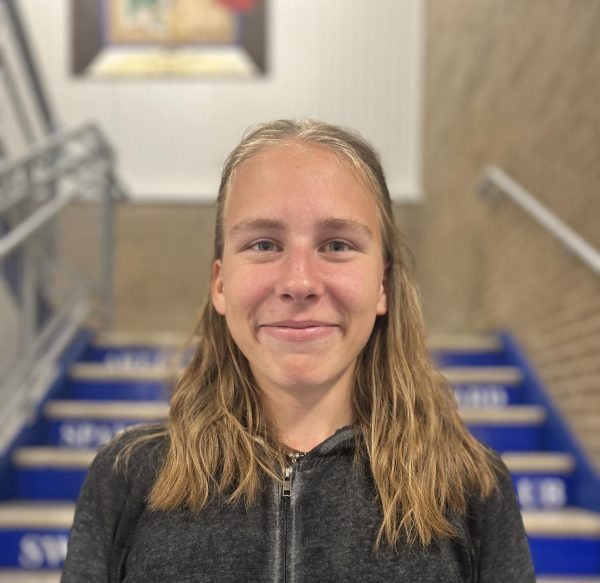Creating a better tomorrow
How REACT Club is battling climate change
Photo by and used with the permission of William Chialdikas
Members of the REACT club smile as they work on helping the forests in Lake Zurich. They remove an invasive species from the oak trees surrounding LZHS.
What would the world look like without animals? If the birds which perch on the trees outside your bedroom window just vanished? Students and staff at Lake Zurich High School are working to help do little things like recycling to make a big impact because climate change could cause a quarter of land animals, bird life, and plants to become extinct in several years according to climateandweather.net.
“We’ve done projects where we’ve looked at our waste in our cafeteria, and how we can improve recycling,” Gyarmaty said. “Or how could we improve composting recyclable materials to help the environment.”
REACT Club works on different kinds of projects varying from helping save the declining bee population to cleaning up the forests around Lake Zurich High School.
“There’s an old woodland on the west side of the school and last year, we worked on removing an invasive species called buckthorn that was overgrown there and now the oak trees there are thriving,” Gyarmaty said.
According to defenders.org, climate change has brought risk to the wildlife of the Midwest region of the U.S. and to the habitats they depend upon. Climate change is continuing to worsen because of the greenhouse effect, according to Julie Gyarmaty, science teacher and REACT Club sponsor.
“The greenhouse effect is a good and bad thing for our planet. If we didn’t have the greenhouse effect, we wouldn’t be able to live on Earth, it would be too cold. But the more greenhouse gas that you build up, that traps more heat in your atmosphere that can’t get out and radiates back out to space, which causes temperatures to rise abnormally,” Gyarmaty said.
However, the abundance in greenhouse gases can be prevented by doing things such as recycling according to Gyarmaty.
“I really like taking action and trying to help the environment because you get to help in so many different ways,” William Chialdikas, senior member of REACT, said. “I try to help [the environment] by recycling and by spreading the word.”
When the students in REACT are not outside working, they are spreading the word to other students and staff on how to help the environment.
“We have tried to encourage people in the school to do things like use less plastic water bottles because it is creating more waste. We also try to inform people about how public transportation or riding bikes when you can is much better for the environment because the gases from cars pollute the air,” Chialdikas said.
REACT club works on encouraging people in the school to work together and just take little actions to help, so everyone can experience a better environment, according to Chialdikas.
“We focus on how we can improve things, like how we can make things more sustainable for future generations,” Gyarmaty said. “When we do the little things, we’re helping the planet have a better tomorrow.”

Coming back for her last and third year on the Bear Facts staff, Lindsey continues her role as the Sports Editor. As college approaches, she intends to...

